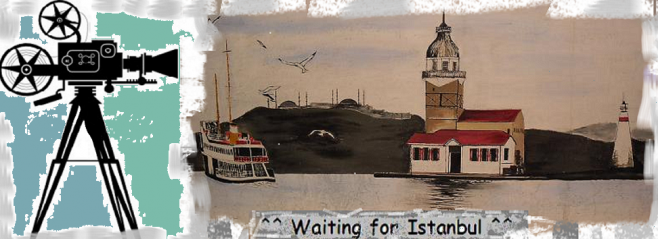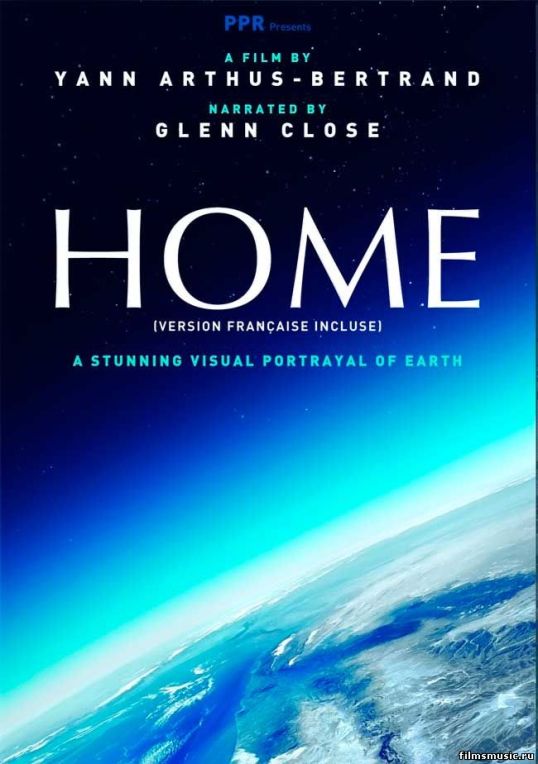On Friday June 5, 2009 Yann Arthus-Bertrand released internationally the new movie, Home, a movie about the dangers human activities create to planet earth. Beautiful aerial photography, an omnipresent music score and great post-production make this movie more emotional than most previous movies about the subject. —Wikipedia
HOME documentary – Earth’s unsustainable energy and environmental situation – with critical review
The film HOME by Yann Arthus-Bertrand is a beautifully shot panorama of the Earth and the damage done to it by modern humanity. It includes a moving narration about the evolution of the Earth, nature, agriculture, humans, and the crises of habitat destruction, energy depletion, climate disruption, degradation…of the environment, health, economic disparity, and more. They are well integrated in the film, but many assumptions in the script make this film hard to recommend unless accompanied by a reality check on energy and the value of traditional ways.
Statements such as “education is a privilege” treat upbringing and learning as if they are only modern phenomena. The same thinking produce the statement “The memories of thousands of years’ scrabbling for food [as hunter gatherers] faded [with the agricultural revolution].” So-called primitive societies work less and have tighter families and community. HOME goes on to claim “For humanity, agriculture is a prerequisite of survival.” What about how people survived before 6,000 years ago?
Fascinating statistics include “Half the population of the world tills the soil, over three quarters of them by hand.” And one quarter of the world lives as all of us did 6,000 years ago with only the energy available from the sun and biomass of the area.
“A liter of oil produces as much energy as 100 pairs of hands in 24 hours.”
“In the United States, only 3 million farmers are left. They produce enough grain to fee two billion people. But most of that feed is transformed, as in all industrialized countries.. for livestock or biofuels.”
“Over the last century, three quarters of the varieties developed by farmers over thousands of years have been wiped out.”
Thirteen thousand liters are required to produce one kilo of beef, while 100 liters of water are required for one kilo of potatoes.
Ninety-five percent of soy farms in the Amazon region, which has shrunk by 20% in the last 40 years, goes to Europe for livestock and poultry. So a forest is turned into meat.
But the narration reveals a lack of understanding of the implications of peak oil. Additionally, technology is romanticized, guaranteeing that the Earth’s crisis will not be solved by those wedded to present concepts:
“This pocket of sunlight [fossil fuels] freed humans from their toil on the land. With oil began the era of humans who break free from the shackles of time.”
The assumption is that energy extraction can be sustained, as in “Oil might run out; we can still extract oil from the tar sands of Canada.” Not that the film makers wish to see that, but they are not aware of the inability of tar sands to satisfy much demand when conventional oil extraction is already starting its plummet.
Helpful perspective:
“The concentration of carbon dioxide hasn’t been so high for several hundred thousand years. Humanity has never lived in an atmosphere like this.”
“Greenland’s ice contains 20% of the fresh water of the whole planet. If it melts, sea levels will rise by nearly seven meters.”
But:
“Everybody can prosper and earn a decent living… Let’s be responsible consumers; think about what we buy…” These are outmoded concepts. The Earth has too many people for everyone to prosper. Instead of earning a decent living, we need to live decently. We must stop being consumers, and avoid buying by making and bartering what we need.
“All we have to do is cultivate the sun” to replace the energy used that is 80% from fossil fuels. — Sounds like a nice thought, if you think we need so many appliances and believe they can somehow be manufactured for long. This film is part of the technofix lobby and the delusion of progress for civilization. The film makers have no concept of the limiting role oil plays in the technofix industries, nor how these technologies only produce electricity (and not nearly as efficiently as the cheap oil that is gone).
The chief sponsor of the Home movie is the PPR Group, which includes fashion-clothing companies employing a total of 80,000 people. The top management no doubt feel proud comfort for putting a nice feather in its cap. Unfortunately, this film is another case of people understanding the severity of the crisis and then turning it into an opportunity for perpetuating nearly the same status quo.
At best, good intentions can save some forests, cut back some on greenhouse gas emissions, but trends will not turn around until the capitalist model of growth is terminated for lack of energy and materials. Petrocollapse will take care of this. But after how much damage? This is why people need to be the change we need now, rather than waiting for governments and corporations (or some old-time revolution) to make things right — they will never do it because of corruption by the greedy and predatory.
HOME documentary – Earth’s unsustainable energy and environmental situation – with critical review
Famous for his ‘earth from above footage’, photographer Yann Arthus-Bertrand’s new film is a feast for the eyes with a strong ecological message says Polly Cook
When you sit down to watch a documentary on climate change you expect pretty much the same thing. Impressive computerised images used to show where our planet might be in ten year’s time. Crammed with science and graphs. Clever, and shocking but rarely doing anything different. This film however, that premiered in the world’s richest cities on World Environment Day (5 June), is in a different league. I went along to the premiere in London’s Trafalgar Square.
Most of the footage is shot from above – which makes for quite simply, awesome viewing. Yann Arthus-Bertrand, a French photographer famous for his ‘Earth from above’ footage, filmed the documentary in 54 different countries all over the world, managing to reach and capture even the most remote of places.
Home is gracefully narrated by Glenn Close, the script is straightforward and content heavy, yet beautifully written, giving just the right about of information exactly when you want it. It gradually unfolds a story, starting with the birth of Earth, and then moves onto how it developed, how it flourished, and at the rate we’re going, humanity becoming the eventual death of it.
But what sets this film apart from others, is how much material it covers. It didn’t stop at filming polar bears swimming in vast open water or at someone taking a chainsaw to the roots of a tree in the middle of the Amazon. Bertrand used bird’s eye view footage of the frozen lakes in Siberia, the practically non-existent River Jordon, the cultivation of soya in the rainforests and mass cattle herding. He captured the intertwining crammed roads in Los Angeles, the robotic ‘invention’ of Dubai, and the soaring sky scrapers in China, built on land that only forty years ago was a fishing village. It is these shots, among so many others, makes Home the all encompassing, innovative film it is.
Bertrand looks at the bigger picture – not just what is happening, but how and why. He explores our greed for meat, oil, wealth and the utter ignorance that surrounds development. He presents information people wouldn’t know from just watching the odd TV programme. Sure, we all know oil is running out. But Home confronts the problems with eucalyptus monocultures, shrimp farming and how climate change is creating more social divides between rich and poor than ever before. In fact, there isn’t much this film doesn’t touch on.
However, for the wealth of information given to the audience in this documentary, it is not surprising that there are moments (for me it was when I saw a shanty town being shadowed by an oil plant) it seems there is no hope, and you feel like jacking it all in and giving up trying.
That is, until the dystopian mood of the film mutates into something quite different, declaring over and over ‘It is too late to be pessimistic’. It concludes presenting a whole reel of things humanity has done in an attempt to stop climate change: responsible consumerism, wind farms, solar power and climate change education. But most importantly, the fact that most of the world is now at least recognising we have a problem.
When the credits start rolling, you come away with these fantastic images floating around in your head, reminding you of how beautiful this planet actually is. What’s more, you want to do your bit to save it. At least, that is the hope.
http://www.theecologist.org/reviews/films/272468/home_by_yann_arthusbertrand.html

